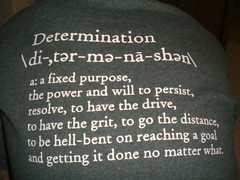Career Decisions one Week at a Time
I have re-blogged this article from The Age Monday 4 August 2014, Education supplement.
I strongly believe in the merits of work-experience programs in schools.
In year 10, when students are beginning some career exploration work, it is of great benefit to work with then on resume writing, interview techniques and job search skills, and then get them to do some independent exploration into a placement that is of interest to them.
Some will gain insight into an industry that then becomes their passion, and the mentor(s) who guided them in the work-experience program might then be a very useful member of that student’s network of advisors and referees. Conversely, for some students the week in a workplace may help then to initiate a re-think.
In 2014, students in year 10 at Cornish College, in Bangholme, Victoria, spent one week in diverse locations such as hospitals, at archeological digs on the foreshore, in corporate offices and at primary schools in the local area. Students can in fact take up to 40 days of work-experience, however with a packed timetable is isn’t easy to fit more placements into the academic year. Cornish College students in years 10 and 11 are encouraged to consider looking for a further placement, perhaps in the school holidays, and are supported but the senior years team in formalising their arrangements.
Rebecca Butterworth’s article highlights the merits of the system that has been running in Victorian schools since the 1970s.
Fifteen-year-old Dominic Hale has written a speech for Anna Burke, MP, and she’s about to read it to Parliament.
”I wasn’t expecting to be given that opportunity – especially for someone who’s only been working in the field for three days,” the year 10 Wesley student says. He is, in fact, only employed by Burke for the week – he’s on work experience. Dominic’s speech was 90 seconds long but he’s also written letters to ministers, helped upgrade the electorate database and information kits, and replied to constituents about asylum seekers and the federal budget.
Burke’s office takes several students every year, and the veteran politician believes it gives invaluable insight into the realities of work. ”When I stood as a candidate in 1997, I’d been in the workforce a long time … but I said to somebody, ‘If I win, what am I doing? Like, what’s the job?’,” Burke recalls. ”I think it’s great exposure for the kids, and if we can afford to have kids at the office, why not?”
Victoria’s year 10 work experience program, which has been around since the 1970s, is often seen as a coffee-making, photocopying fizzer. Some still see it as just a way into part-time work, but students and schools that devote time to enhancing the work-experience program give students invaluable insights into the realities of career choices, and support more successful secondary and tertiary study.
Advertisement
Some believe, if done well, work experience can shape an individual’s developing sense of self. ”We don’t do work experience properly at all,” says clinical psychologist and careers coach Dr Darryl Cross. ”This stage of adolescence is about identity – finding out who I am, what are my strengths. These are not incidental questions, and if you don’t sort that out in adolescence, it’ll come back to bite you in the form of a mid-life crisis.”
He says work experience should be an opportunity to find out whether a job suits a student’s personality. ”Work experience assumes that prior to it there has been some career exploration, or some self-discovery,” he says. “But what happens is there’s little prior work, and kids just make a mad dash and grab anything they can.” Cross believes career choices for students are unduly influenced by vested parties, rather than self-awareness. ”Pressure comes mostly from the universities, and it’s shameful. It’s all about getting an ATAR.”
Nadija Anin, careers counsellor at Lowther Hall, agrees that work experience can be an antidote to the idea that careers on television such as medicine, law and crime scene forensics are the only jobs worth having. ”[Students] will go and do their placement and they’ll come back and say, ‘No, no way’,” says Anin.
Juliet Honey, careers counsellor at Doncaster Secondary College, thinks work experience should be part of a holistic approach to careers. ”A lot of people tend to see it as something that gets students part-time work at KFC,” she laughs. ”That’s not what our careers program is about. We don’t even call it work experience – we call it careers experience.”
Honey is employed exclusively as a careers counsellor, not a teacher, and her students at Doncaster Secondary have recently gone out for placements. Vinoda Perera, 15, wants to be a lawyer; her mum wants her to look at accountancy. Vinoda’s first work experience was at a family friend’s accountancy firm. ”They just kept throwing challenges at me, but it meant that I was doing practical work,” she says. ”I was working with people’s superannuation, their taxes, their stocks. It was quite surprising.”
Vinoda’s second work experience week was at Shine Lawyers. ”I went to mediations, I worked with paralegals, and solicitors themselves,” she says. Seeing paralegals without law degrees doing interesting work “sort of helped me realise that [the pathway] is not set in stone”.
Fellow student Tysha Crowley-Davis worked with Victoria Police. ”I got to go to the academy, and the Magistrates Court,” she says. ”I answered phone calls from the public, took down the details if they saw an abandoned car, and I got to see them [hand out] the weapons, and stuff. I wasn’t sure if I wanted to be a police officer, but I definitely do now.”
The careers-guidance process at Doncaster takes 12 months. It starts midway through year nine, includes an interview with an employee, daily journals during work experience, written reflections afterwards and guidance towards VCE subjects. Doncaster also facilitates the Victorian Department of Education and Early Learning’s Engaging Parents in Careers Conversations (EPICC) program, which gives parents the confidence to start career conversations at home. But Cross says that not enough schools do this preparation. ”Careers teachers are flat out, and many schools don’t even have careers teachers, or counsellors,” he says.
At bayside Elwood College, Nelson Dean, 15, has just finished his work experience in which he travelled to Coburg each day on public transport to animation studio Bogan Entertainment Services. He spent his placement colouring in cartoon panels, which bounced off his hobby; he spends most of his spare time making claymation stop-motion videos with his friends. Until his work experience, Dean had always thought he wanted an outdoors job, but the placement changed his attitude. ”I used to have a blanket rule against working in an office, but it made me see that offices aren’t always bad,” he says.
According to the Education and Training Reform Act (2006), students can undertake up to 40 days of work experience – not just the five most do – exposing them to multiple careers before they choose educational pathways. Proactive, assertive students get the best places, but proactivity is not the only valuable attribute. All students deserve insight from experienced adults about careers that could work for them, and a strong work experience program can provide that insight.
Sophie Chauhan, 15, from Presbyterian Ladies College,who also worked with Burke at her electorate office in Syndal, says her placement has made her more relaxed about a career in politics. ”Having a career is almost dehumanised to an extent, because we’re not exposed to the work force at a personal level. It seems very daunting,” she says. “I think work experience is very important because it bridges that gap. I think that’s what makes it valuable.”
Read more: http://www.smh.com.au/national/education/career-decisions-made-one-week-at-a-time-20140731-zyxgo.html#ixzz39O6WMily
Similar articles

“There is nothing Clever about not being Happy” Arnaud Desjardins
That’s a pretty bold statement, Monsieur Some Gardens! I found the quote in a gorgeous book, Buddhist Offerings 365 Days, Edited by Danielle and Olivier Follmi, and published by Thames and Hudson. Alongside of each days’ quote is a stunning photograph, and against this particular quote is a photo of a horse lying on its […]

“Where there’s a Will, there’s a Way”
I heard myself saying this to a despondent young man the other day, and wondered how helpful I was being. Oh dear, questioning my own tips might be a troublesome habit, however it does serve to galvanise me into action to check on my sources and ponder the idiom.

20th March is International Day of Happiness
“Each individual is master of his or her destiny: it is up to each person to create the causes of happiness” The 14th Dalai Lama 20th March is International Day of Happiness What a pity we need special days and coffee table books with images of smiling faces to nudge us into a happiness […]

